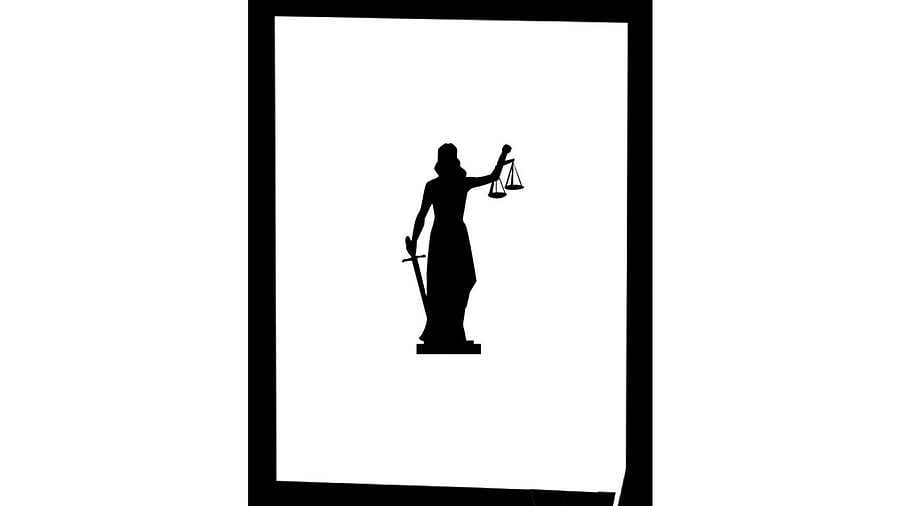
“It’s all happening out there”, the Aussie cricket captain-turned-commentator used to say from the box. Yes, “it’s all happening out there” in the US. Donald Trump’s lackeys, including his Vice President Mike Pence, are under direction to testify in criminal investigations.
Trump’s lawyer, Evan Corcoran, who was involved in turning over classified documents found at the Mar-a-Lago resort to the justice department last year, must provide additional testimony in the criminal investigation, a federal judge ruled, overriding his objections of attorney-client privilege.
The summoned witnesses are running for cover. They have to turn over themselves and the documents called for. There is no way they can avoid it. The rule of law shall prevail, as “Be you ever so high, the law is above you.” It has been demonstrated by the first of the indictments in the porn-star Stormy Daniels hush money payment scandal. Three far more serious indictments await the former US President.
But the question uppermost in one’s mind in India is, why are they so afraid to testify? Can’t they just appear in court and say whatever they want to say? And then retract it or say they were under duress to say so? Or say that it was all the result of a conspiracy? Why don’t they follow our leaders here in India?
Perjury is a very serious offence in the US, particularly in the context of a legal investigation or proceeding. Perjury occurs when an individual knowingly makes a false statement under oath, either in writing or during oral testimony. If found guilty of perjury, one can face significant legal consequences, including fines, imprisonment, and damage to reputation. In the US, perjury is typically considered a felony offence, which means it can result in imprisonment for more than one year. The exact penalties for perjury depend on the specific circumstances of the case, including the nature of the false statement, the context in which it was made, and the individual’s criminal history.
Perjury is considered a serious offence because it undermines the integrity of the legal system. If someone is willing to lie under oath, it compromises the ability of a court or other legal body to make fair and accurate decisions based on the facts of a case. As a result, prosecutors take perjury allegations very seriously and often pursue charges aggressively if they believe that someone has lied under oath.
On the contrary, in India, perjury happens all the time. Our leaders are past masters in this game. They allege ‘political conspiracy,’ ‘witch-hunting,’ and more. When they do appear in court, they say whatever they choose to say and get away with it. How?
Dear reader, there is but a simple answer. They do not need to tell the truth. They can lie through their teeth. For they can get away with perjury. The offence of perjury is passé in our dispensation. No one cares. Neither the prosecution nor judicial institutions, neither the prosecutor nor the witness. They escape without even a rap on the knuckle. It is a Pandora’s box no one wants to open.
Why? Because mendacity is pervasive in our criminal justice system. A witness turning hostile is now too commonplace. One is reminded of this passage written by Justice P N Prakash of the Madras High Court, in his introduction to Rattanlal & Dhirajlal’s The Law of Evidence: “There is a forceful school of thought that says that Indians are not congenital liars as portrayed by the Europeans, but the long periods of slavery under various foreign rulers had made them so weak that they were forced to resort to deceit as a means of survival. Yet another school is of the view that the court system established by the British provided fertile ground for perjury by the natives, who did not have a sense of belongingness to it. Whether we like it or not, even today, people respect courts more out of fear than out of any great love for them.”
The late Justice M Srinivasan famously said, “Law is in search of proof, not truth. To prove truth in a court of law, you need proof.” The witnesses are required to swear to tell “the truth and nothing but the truth”. But our criminal justice system is replete with the “unique phenomenon of hostile witnesses” mutilating the justice delivery system. Mendacity is turned into a virtue to rescue criminals.
Remember what happened to Jeffery Archer, the famed novelist and a UK Conservative Party parliamentarian? A real twist in the tale, indeed. In 2001, Archer was found guilty of perjury and perverting the course of justice during a 1987 trial. He was sentenced to four years’ imprisonment by Justice Potts. Perjury is too serious an offence. You simply cannot get away with it there.
Read this famous Trump tweet: “It is my great honour to announce that General Michael T Flynn has been granted a full pardon. Congratulations to @GenFlynn and his wonderful family, I know you will now have a truly fantastic Thanksgiving!” A retired army General had pleaded guilty to lying to the
FBI, and had to be rescued by a Presidential pardon.
Perjury is a serious offence in any democratic polity where the rule of law prevails. It is considered worse than the ‘principal crime’ under investigation or being prosecuted in court. No one is arguing that in the Western hemisphere, the citizens are more truthful and that we are less truthful. However, when a crime is reported and is being investigated, or when the law takes its course, truth triumphs over perjury there,
not so here.
We, the people, can get away with perjury. It is a systemic fault line or a cultural disconnect. When the principal crime committed by politicians itself does not matter, would perjury matter as a crime?
Satyameva Jayate!
(The writer is a practising advocate in the Madras High Court)